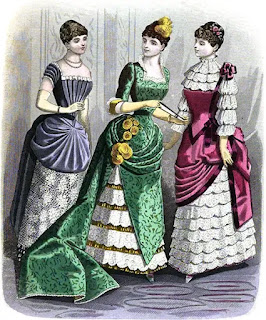Clichés – do they arrive in an unstoppable flow, or an endless stream? Are we overwhelmed by a tsunami of banalities? Inundated by a flood of stale metaphors? Can we ever purge ourselves of these tired expressions as our overburdened prose limps to a foregone conclusion?
We wish our correspondents would leave off use of the silly slang phrases “awfully jolly”, “awfully pretty” et cetera. An earthquake, forked lightning and tremendously loud thunder, conflagration, or the shrieks of agonised sufferers – these may be correctly termed “awful”. (Girls’ Own, 1880s)
Characters repeatedly “flit”, “flutter” and “float”... We encounter “forbidden fruits”, “love nests”, “wreaking havoc”, “unspoken tension”, “wildly inappropriate” and “rampant promiscuity”. (Times on Capote’s Women by Lawrence Leamer)
Oneiric: a word that looks impressive in a book review in one of the quality papers. Nobody knows what it means. See also: lambent, limpid, plangent. (@AodhBC)
What I don't recommend is the ghastly decision to shoehorn into the text otiose references to her personal and family life. Insofar as they give any insight into her as a person they serve mostly to irritate. She runs up hills, mountain bikes up mountains, does spin classes at dawn, cycles everywhere, collects eight kinds of mushrooms out in the woods, has a modest cottage in Hay on Wye and is a kind of ordinary person with knobs on... Where these acknowledgments stray into description, it is usually to note character traits in which prisoners aren't taken, focuses are laser-like and people work through illnesses, which is exhausting and boring, made even more difficult by almost all these folk seeming to work for a different acronym. (David Aaronovitch)
Instead of brevity and glorious poetic imagery, we are offered cliché (“gossamer summer”, “sugary snow”). (Times review of After Sappho)
In life, there are some certainties. Tributes always flood in (they never trickle), lucre is always filthy, virtues are always extolled, rises are always meteoric, gauntlets are always run. (Victor Lewis-Smith on That’s Life)
Here’s a straightforward, largely well paced and sympathetic account of the life, marred by a slight weakness for banalities of the ‘As he waved goodbye to England, he could not have known that in five years he would be back’ type. Of Chandler, drunk, calling his wife, threatening suicide, Williams tells us: ‘It must have been awful for her.’ Really? (Sam Leith in the Spectator on a biography of Raymond Chandler. A Mysterious Something in the Light, Tom Williams)
When dancer Isadora Duncan was planning her autobiography with writer Sewell Stokes she mused: “Memoirs always have ‘a little old woman in rusty black’ in them somewhere.” In the end Stokes wrote the book for her.
Goodness, though, the clichés in this book. Not just any old clichés, but a whole glossary of posh ones. Penny Junor depicts Camilla’s world as a place where friends “get on famously”, are a “tower of strength”, “go the extra mile” and support each other “through thick and thin”. When “things go pear-shaped” and there’s “trouble on the home front”, they have “monumental rows”, “call each other every name under the sun”, and sometimes resort to “cloak and dagger antics”. These off-the-shelf expressions save a writer from having to think freshly. (Ysenda Maxtone Graham on Penny Junor’s The Duchess in the Times, 2017.)
Reading a music book that is using all the worst hyperbolic terms for noise/drone music — “teeth-rattling”, “ear piercing” – alongside such dreaded rock prose clichés as “seminal”, “sophomore”, “albeit shot through with their trademark...”. (@Andr6wMale)
More here, and links to the rest.

No comments:
Post a Comment